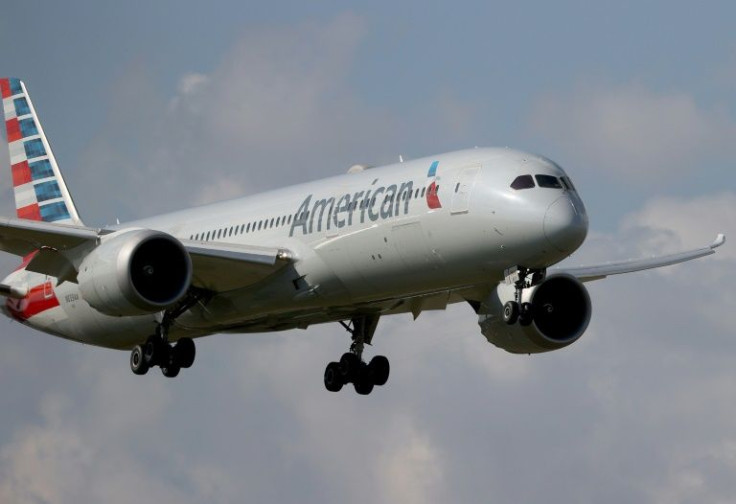Boeing Reports Large Loss On $3.8 Bn Costs Tied To 787 Woes
Boeing reported a hefty fourth-quarter loss Wednesday as mounting costs connected to the widebody 787's woes more than offset the boost from the comeback of the 737 MAX after a lengthy grounding.
The US aviation giant accounted for a total of $3.8 billion in one-time expenses associated with compensating airlines for delayed deliveries of the 787 and more costly production processes.
Boeing suspended deliveries on the jet this spring due to quality problems and has been working with US air safety regulators on fixes to the aircraft.
Those costs were the biggest factor in the company's $4.1-billion quarterly loss.
Revenues fell 3.3 percent to $14.8 billion.
The difficulties with the 787 dampened Boeing's momentum as the airline industry recovers from a devastating slump due to Covid-19. In another positive, though, Boeing has resumed deliveries of 737 MAX, which was grounded for 20 months following two deadly crashes.
The company has also seen an uptick in orders for commercial jets and cargo planes.
Chief Executive David Calhoun described 2021 as a "rebuilding year," noting the progress on the 737 MAX.
"On the 787 program, we're progressing through a comprehensive effort to ensure every airplane in our production system conforms to our exacting specifications," he said.

"While this continues to impact our near-term results, it is the right approach to building stability and predictability as demand returns for the long term."
Boeing did not offer a timetable for resuming deliveries amid ongoing talks with the Federal Aviation Administration. The company is currently producing the jet "at a very low rate."
Boeing doubled its estimates for total "abnormal costs" associated with the 787 problems to $2 billion after concluding in the fourth quarter that the issues "will take longer than previously expected" to resolve.
Besides the loss in its commercial airplane business, Boeing suffered an operating loss in its defense, space and security business following $402 million in one-time costs on the KC-46A tanker program.
The tanker costs are primarily due to shifting customer preferences and supply chain disruptions due to Covid-19, a Boeing spokesperson said.
Peter McNally, an analyst at Third Bridge, described Boeing's quarter as "turbulent," noting that the issues with the 787 "are dragging into 2022 with major financial consequences," he said in a note.
"The company continues to lose ground to its primary competitor, Airbus," McNally said.
"However, there have been some bright spots as underlying demand for travel has picked up, Boeing is booking new orders for customers and the balance sheet has started to move in a more positive direction."
Shares rose 2.4 percent to $208.97 in pre-market trading.
© Copyright AFP {{Year}}. All rights reserved.





















